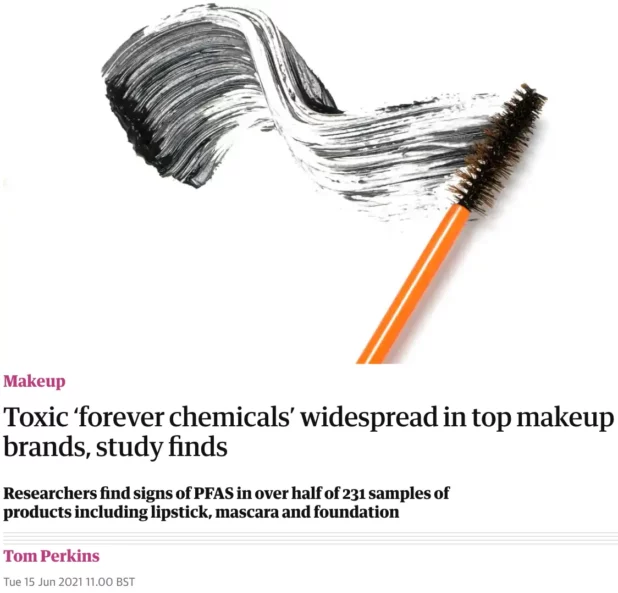Related: 1 in 6 People Unable to Conceive After One Year of Regular Unprotected Sex, WHO Warns
So, the whole environment is poisonous.
That seems like maybe a problem, but I guess it’s not.
The actual environmental problem, it turns out, is fake graphs that say the weather is changing.
Women with higher levels of so-called “forever chemicals” in their blood have a 40% lower chance of becoming pregnant within a year of trying to conceive, according to the first known study on the effect of PFAS on female fertility.
PFAS, or per- and polyfluoroalkyl substances, have been found in almost everyone tested for them, with 99% of people in the US contaminated. The research was conducted in Singapore, where contamination levels are lower, but the scientists still found a strong correlation with reduced fertility.
PFAS are a group of chemicals that are water- and oil-resistant, and are used in a vast array of products, from non-stick cookware and food containers to clothing and furnishings. They are often called forever chemicals because they are very slow to break down in the environment and are now widely found in water and soil. They have been increasingly linked to health damage, including cancers and liver, kidney and thyroid disease.
Some PFAS have been banned but more than 12,000 chemicals in the class have been produced. The scientists who conducted the research called for the entire group of chemicals to be regulated.
“Our study strongly implies that women who are planning pregnancy should be aware of the harmful effects of PFAS and take precautions to avoid exposure to this class of chemicals,” said Dr Nathan Cohen, lead author of the research at the Icahn school of medicine at Mount Sinai in New York. One in six people worldwide are affected by infertility, according to a World Health Organization report published on Monday.
Dr Damaskini Valvi, an assistant professor at Icahn Mount Sinai, said: “We are currently facing a global PFAS contamination problem. Stopping producing PFAS in the first place is the only way that can help us avoid exposure completely.
You notice that it’s only really the Guardian that does big news stories about this. The Western Jewish papers don’t do big stories about this, because they recognize that talking about real, tangible, identifiable environmental issues is a threat to the global warming agenda.


